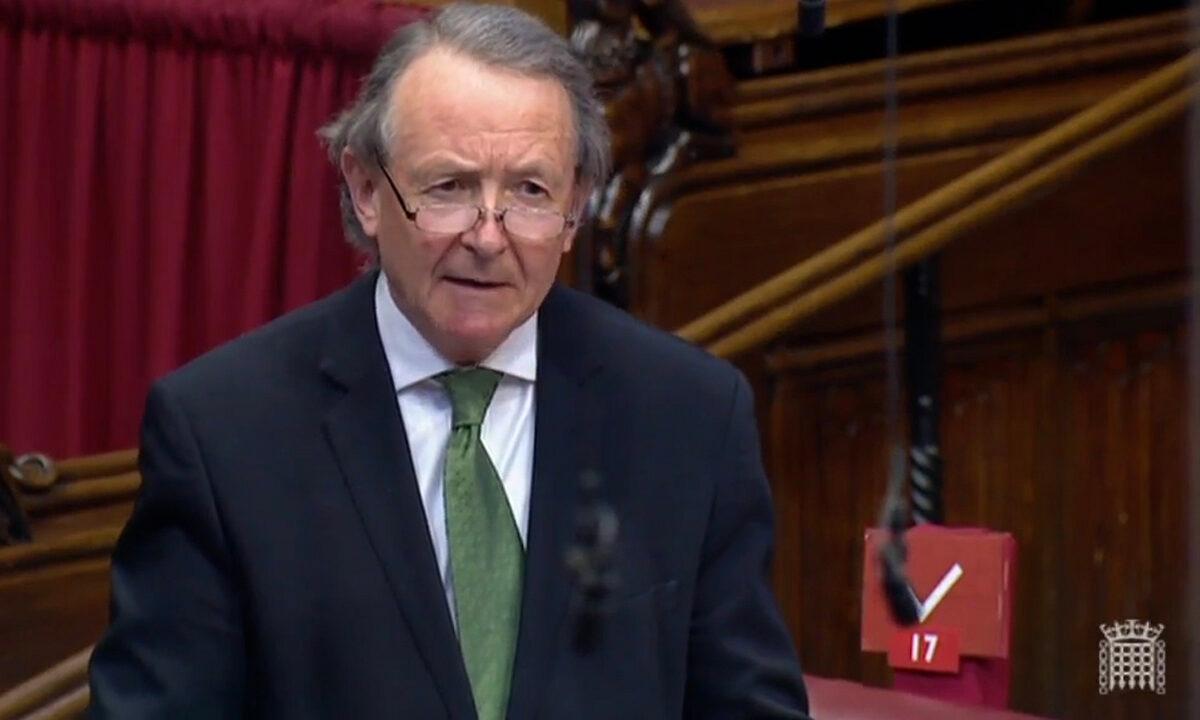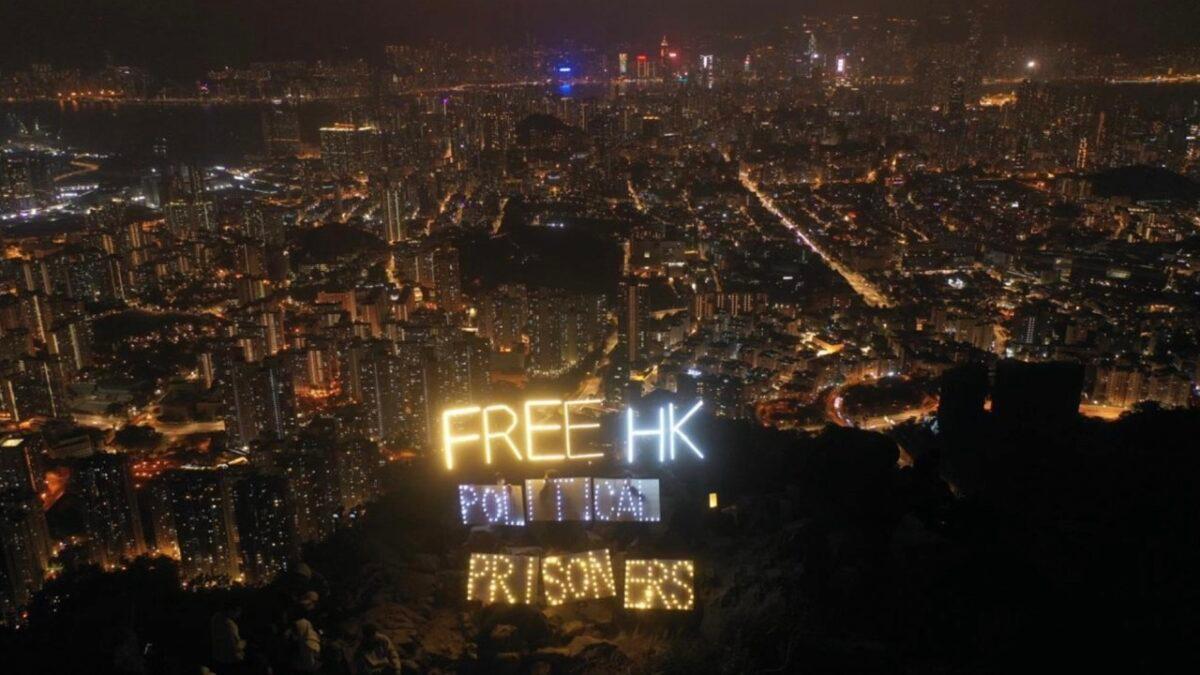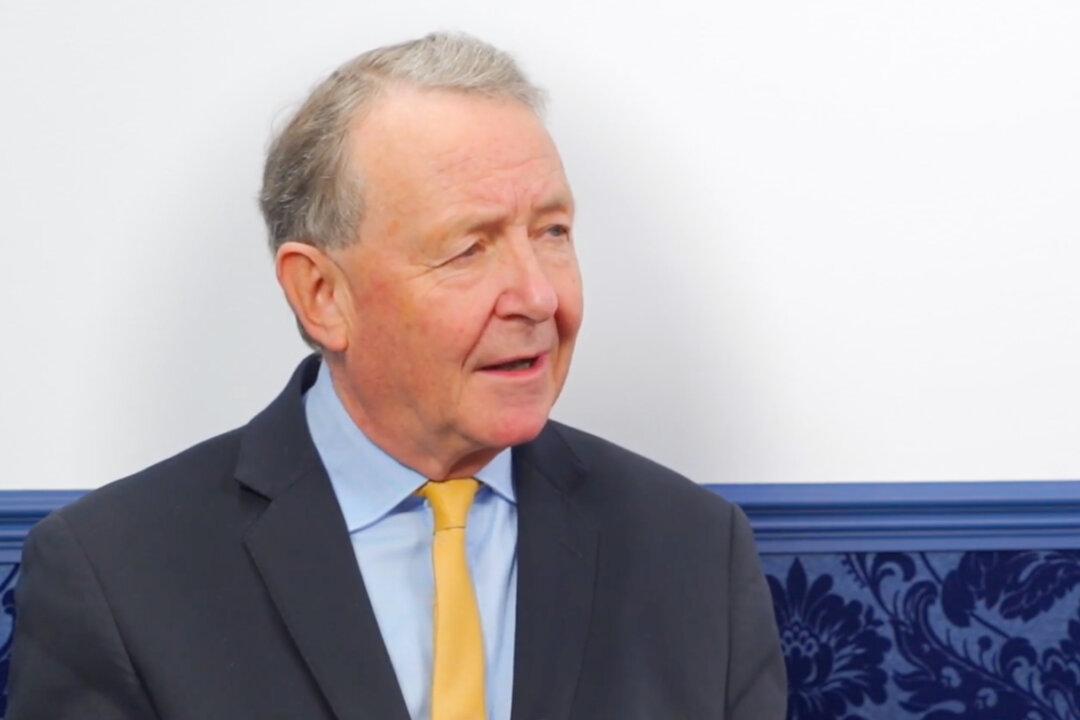Once the youngest member of Parliament in the House of Commons, the UK’s Lord Alton of Liverpool has spent much of his adult life fighting for freedoms around the world.
Born to Christian parents and shaped in his teens by world events such as the expansion of the Communist Bloc and the assassinations of Martin Luther King and Robert F. Kennedy, David Alton went into politics as a young liberal at the age of 21.
He served as a local councillor for seven years, before spending more than 40 years in Westminster—18 years in the House of Commons and more than 25 years in the House of Lords.
Dependency on Genocidal Regime
Besides his effort to advocate for the rights of the unborn and on other domestic and foreign affairs issues, much of Alton’s focus is currently on China’s ruling Communist Party (CCP), both the regime’s human rights violations and its threat to the world.He currently sits on the International Relations and Defence Committee, which has been examining the UK’s security and trade relationship with China.
“It was during that inquiry that I was able to point to the lack of resilience in the UK and the increasing dependency which has left us—now we have a £40 billion ... trade deficit with the People’s Republic of China [PRC],” he said.

One of the reasons it’s dangerous to be dependent on the CCP relates to the legal determination of genocide, such as human rights abuses in China’s Xinjiang region, another issue Alton has been doggedly pursuing in recent years.
If the bill becomes law, the High Court of England and Wales will have the power to make preliminary findings on cases of alleged genocide, crimes against humanity, or war crimes.
In December 2021, the independent Uyghur tribunal in London, led by Sir Geoffrey Nice, KC, ruled that the Chinese regime had committed genocide against Uyghurs and other Muslim minorities in Xinjiang.
U.S. government, UK Parliament, and a number of other legislatures around the globe have also declared what’s happening in Xinjiang is genocide, but the UK government has so far resisted pressure to use the label.
Successive UK governments have maintained the position that the determination of genocide should be made by a “competent court” such as the International Criminal Court (ICC) and the International Court of Justice. However, the two routes are effectively blocked owing to the China’s veto power in the United Nations Security Council, and because it isn’t a signatory to the Rome statute, which establishes the ICC’s functions, jurisdiction, and structure.
Former Foreign Secretary Liz Truss acknowledged the reality during her campaign to become prime minister in August last year, saying she had been “actively looking at” ways for the UK to deal with genocidal regimes.
Alton said it’s important to “keep up the pressure” because the UK has a duty under the 1948 Genocide Convention to prevent genocide, protect those affected, and to punish those who have been responsible.
His bill, if it becomes law, would affect many other parts of the world too, he added.
“When you think about what’s happened to the Rohingya Muslims, you think about the Christians in northern Nigeria, the numbers are ... stretching all the way back to the Armenian genocide,” Alton said. “We have failed in the duty to uphold the Genocide Convention, and to protect and to prevent and to punish, and we’ve got to do better in the future.”

‘Have Our Eyes Wide Open’
As a patron of Hong Kong Watch and vice chair of the All-Party Parliamentary Group on Hong Kong, Alton observed “what now turned out to be the last fair and free elections” in Hong Kong—the 2019 district council elections.Looking back at the “one country, two systems” strategy that was proposed by former Chinese leader Deng Xiaoping and agreed by former British Prime Minister Margaret Thatcher, Alton said that it appeared to be “an act of genius” that many believed “if it’s made to work could be a way of resolving the issues around Taiwan in the future.”
By crushing democracy, Alton said the CCP has “destroyed two systems, one country in Hong Kong,” and the world’s democracies need to “recognize that there are real implications here for the West.”
He said it’s “absurd” to talk about the “re-absorption” of Taiwan, as the de facto sovereign island has never been a part of communist-ruled China.
“And yet, [Chinese leader] Xi Jinping regularly says it’s their intention, if necessary by force, to invade Taiwan and to take away the freedoms and liberties that the 23 million people of Taiwan enjoy.”
“This in the end will be a battle between democracy and dictatorship,” he said.
“We must hope for justice in Iran. The ordinary Iranian people have challenged the autocracy of Iran. We must hope it in China that the people themselves as well will change things in China for the better,” he added.
‘The Greatest Threat’
Commenting on Prime Minister Rishi Sunak’s softening of rhetoric by calling China a “systemic challenge” rather than a threat, Alton said the CCP is “more than a challenge.”“Some scholars say as many as 50 million people lost their lives. No organization, political body, set of leaders have been responsible for more deaths—even Stalin, even Hitler—than the depredations committed by the CCP. So we’ve got to be wise about this,” he said.
Alton said he and his family members, like others who have been sanctioned, are wearing it as “a badge of honour” and will not be deterred.
“They’re not going to silence us, not by trying to impose sanctions,” he said.
Alton said the CCP “can’t push people around in this way and expect them to do nothing about it,” and referred to the Inter-Parliamentary Alliance on China, an international alliance of parliamentarians of all political stripes who agree that “the greatest threat facing the democratic world at the moment is the People’s Republic of China, and along with the PRC, some of the other autocracies with whom they are connected—the Taliban in Afghanistan, Iran, and Russia.”





